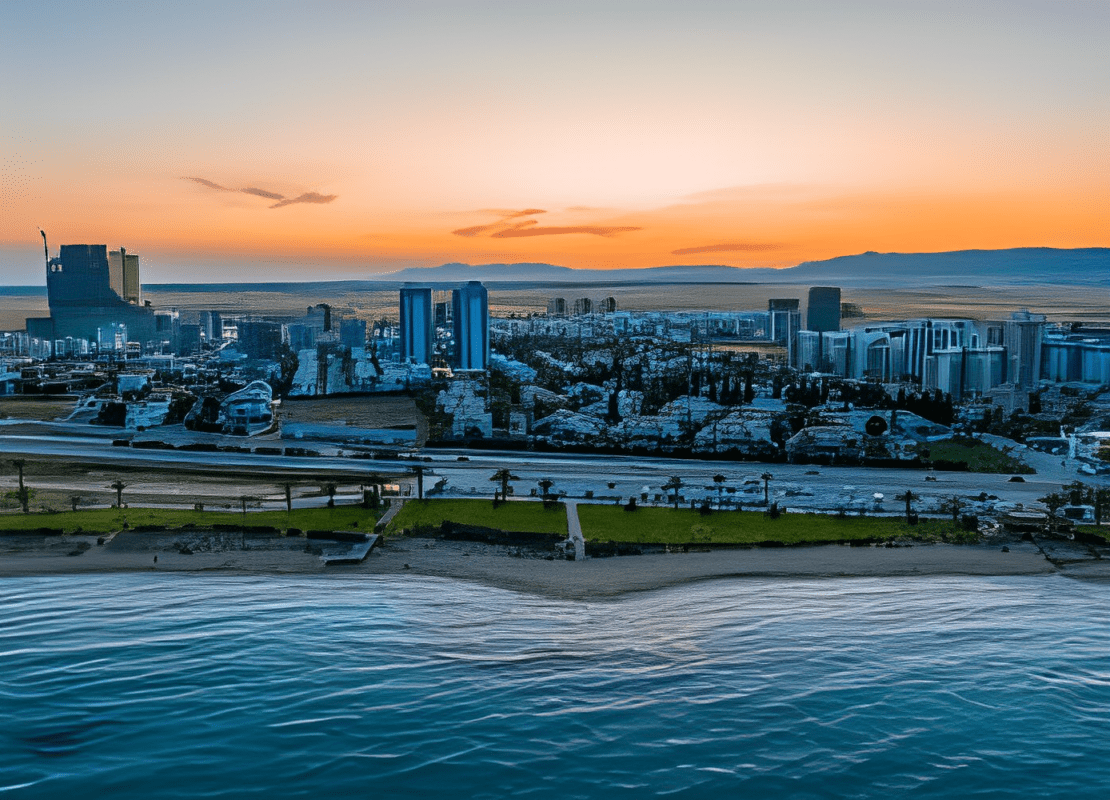Discover the enchanting town of Iskele, a beacon of culture, history, and natural beauty on the eastern coast of North Cyprus. Known by its Turkish name, Yeni Iskele, which translates to “New Jetty,” this town is not only a modern resort destination but also a repository of rich historical narratives and cultural heritage.
Iskele on the Map of Northern Cyprus:
Historical and Cultural Richness
The Town’s Origins and Historical Significance
Iskele’s history is deeply intertwined with the broader historical currents of Cyprus. Originally known as Trikomo, the town was resettled by Turkish Cypriots from the Turkish district after the 1974 intervention, marking a significant phase in its demographic and cultural transformation. The eastern part of North Cyprus, including Iskele, is rich in history, showcasing influences from the Lusignan and Venetian periods, evident in its architecture and cultural sites.
Monuments and Museums
Iskele is home to several historical landmarks that trace back centuries. Among these is the tiny cruciform church of Ayios Iakovos, built in the 12th century, and the century church of St. James. These sites not only serve as places of worship but also as gateways into the town’s Byzantine and medieval past. The Icon Museum, housed in the Panagia Theotokos church in the town centre, is another main attraction, preserving sacred relics and frescoes that date back to the town’s ancient roots.
Cultural Festivals and Celebrations
Iskele is also famous for its vibrant cultural scene, particularly its annual festivals such as the Grape Festival and other events that celebrate local traditions and community spirit. These festivals are major regional cultural events, attracting both locals and tourists, and are held during the first two weeks of their respective periods, featuring music, dance, and local crafts.

Geographical Wonders and Natural Beauty
Iskele’s Scenic Landscapes
Situated on the eastern coast of North Cyprus, Iskele boasts golden beaches and pristine Mediterranean waters, making it a prime location for relaxation and nature exploration. The town’s proximity to the Karpaz Peninsula allows for easy access to some of the island’s most untouched natural environments, where wild donkeys roam free and golden beaches stretch for miles.
The Strategic Location of Iskele
The town’s strategic position, linking Famagusta to Karpaz via the coastal road, not only establishes it as a crucial hub for traversing the eastern part of the island but also places it in proximity to noteworthy historical landmarks and natural wonders. Among these locales are Boğaz and Bafra, celebrated for their picturesque landscapes and burgeoning tourism facilities. Boğaz, in particular, is famous for its charming harbour, surrounded by an array of fish restaurants that cater to the tastes of both locals and visitors, offering fresh seafood with scenic views. This connectivity and the rich array of attractions underscore the area’s appeal, blending cultural heritage with natural beauty to create a compelling destination for travelers seeking to explore the depths of Cyprus’s eastern coast.
Development and Accessibility: The New Face of Iskele
Iskele attracts not only tourists but also far-sighted investors, thanks to its rapid development and colossal prospects. Among the attractions, special attention deserves the Kantara Castle, the Monastery of Apostle Andreas, and the ancient city of Salamis, adding cultural color and historical depth to your rest.
Iskele also offers a comfortable life away from the hustle and bustle of big cities, becoming a second home for retirees from different parts of the world. Here you can lead a healthy and active lifestyle, enjoying communication with loved ones. Real estate in Iskele is accessible, with compact apartments on the first coastline priced from 100,000 to 150,000 euros, making it attractive to many buyers.
Living in Iskele
Choosing Iskele means embracing a lifestyle that balances tranquility with accessibility. The town’s development, highlighted by the presence of modern five-star hotels and a vibrant nightlife, does not overshadow its peaceful atmosphere and the natural beauty that surrounds it. Real estate in Iskele offers a range of options, from beachfront apartments to villas, all within close proximity to the Mediterranean Sea and its golden beaches.
Conclusion
Iskele, with its unique blend of historical depth, cultural richness, and modern development, stands out as a jewel on the eastern coast of North Cyprus. From the 12th-century churches to the annual grape festival, and from its strategic location offering easy access to the rest of the island to its tranquil beaches, Iskele offers a compelling mix of reasons for both visitors and potential residents to explore and cherish. Whether you’re drawn to its history, its culture, or simply the promise of a peaceful life by the sea, Iskele is a destination that promises something for everyone.

